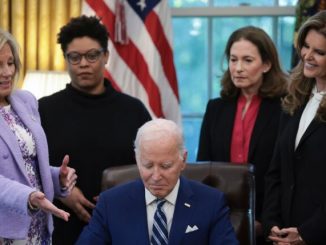
Published September 5, 2025
South African President Cyril Ramaphosa delivered a speech on August 29 in which he praised Zimbabwe’s bloody policy of “land reform,” which targeted white farmers for murder, displaced one million black farm workers, and led to a famine that starved millions more.
South African President Cyril Ramaphosa’s recent praise of Zimbabwe’s controversial land reform policies has sparked significant backlash, both domestically and internationally. In a speech delivered during his visit to Harare on August 29, 2025, Ramaphosa described Zimbabwe’s land reform as “essential and ambitious,” highlighting the need to dismantle colonial-era patterns of land ownership. He drew parallels to South Africa’s own history of land dispossession, suggesting that such reforms were crucial for historical redress, food security, and economic development.
However, critics argue that Ramaphosa’s endorsement overlooks the violent and disruptive nature of Zimbabwe’s land reform. The policy, initiated by former President Robert Mugabe in the early 2000s, involved the forcible seizure of white-owned commercial farms, leading to widespread displacement of farm workers and a significant decline in agricultural productivity. Many of the seized lands were not redistributed to black farmers but instead fell into the hands of political elites and cronies, exacerbating economic instability and food insecurity.
The Democratic Alliance (DA), South Africa’s largest opposition party, has strongly condemned Ramaphosa’s remarks. DA spokesperson Willie Aucamp labeled the praise as “wrongful,” asserting that it whitewashes a policy that devastated Zimbabwe’s economy and led to famine. The DA also expressed concerns that Ramaphosa’s comments could serve as a precursor to South Africa adopting similar land expropriation measures under the newly enacted Expropriation Act of 2025.
In response to the criticism, Ramaphosa’s office has defended his statements, emphasizing the importance of land reform in addressing historical injustices. Presidential spokespersons have dismissed the backlash as politically motivated, suggesting that the opposition is misrepresenting the intent behind the president’s comments.
The controversy has intensified debates over land reform policies in South Africa, with some fearing that emulating Zimbabwe’s approach could lead to similar economic and social challenges. As the nation grapples with its own land redistribution efforts, the international community watches closely, concerned about the potential implications for regional stability and agricultural productivity.
For a detailed account of President Ramaphosa’s speech and the ensuing reactions, you can watch the following video:
👥 Public/Political Reactions
🇿🇦 Domestic Political Reactions
Democratic Alliance (DA): The DA, South Africa’s largest opposition party, has strongly condemned Ramaphosa’s remarks. Spokesperson Willie Aucamp labeled the praise as “wrongful,” asserting that it whitewashes a policy that devastated Zimbabwe’s economy and led to famine. The DA also expressed concerns that Ramaphosa’s comments could serve as a precursor to South Africa adopting similar land expropriation measures under the newly enacted Expropriation Act of 2025.
FW de Klerk Foundation: The foundation, dedicated to constitutionalism and human rights, criticized Ramaphosa for celebrating a policy that inflicted harm on Zimbabwe. Executive Director Christo Van der Rheede stated that the president’s remarks reflect a blind political allegiance to Zimbabwe’s ruling party, placing solidarity above the lessons of history.
Agricultural Sector Leaders: Wandile Sihlobo, chief economist at the Agricultural Business Chamber of South Africa, echoed concerns about emulating Zimbabwe’s approach. He noted that Zimbabwe’s land reform caused significant economic pain and that its agriculture has not recovered since the early 2000s.
🌍 International Reactions
United States: Former President Donald Trump criticized South Africa’s land expropriation policies, claiming they mistreat certain classes of people. He announced the suspension of U.S. aid to South Africa and offered refugee status to white Afrikaner farmers. Trump’s stance was met with criticism from South Africa’s government and various political groups.
Elon Musk: The CEO of Tesla and SpaceX also criticized South Africa’s land reform policies, labeling them as racist. His comments led to a confrontation with President Ramaphosa, who addressed “misinformation and distortions” regarding the land reform laws.
🔍 Public Sentiment
The backlash against Ramaphosa’s praise for Zimbabwe’s land reform policies reflects deep concerns about the potential implications for South Africa’s own land reform efforts. Many fear that adopting a similar approach could lead to economic instability, legal challenges, and international isolation. The debate underscores the complexity of balancing historical redress with sustainable and lawful land reform practices.
 Resulting Effects
Resulting Effects
⚠️ Economic Effects
-
Investor Confidence Decline: Ramaphosa’s comments have unsettled both local and foreign investors, creating uncertainty about the stability of property rights and potential land expropriation in South Africa.
-
Agricultural Risks: Emulating Zimbabwe’s model could threaten South Africa’s commercial farming sector, which contributes significantly to GDP and food security. Experts warn that sudden or politically motivated land seizures could reduce productivity, just as Zimbabwe experienced in the early 2000s.
-
Food Security Concerns: Disruption in agricultural output could lead to increased food prices and shortages, disproportionately affecting lower-income populations.
🏛️ Political Effects
-
Domestic Polarization: The president’s endorsement has intensified political debates within South Africa. Opposition parties like the DA are framing this as a dangerous precedent that could undermine legal land ownership and property rights.
-
Potential Policy Shifts: The remarks may influence policymakers to pursue more aggressive land redistribution strategies, raising fears of instability if reforms are rushed or poorly managed.
-
International Scrutiny: Global attention on South Africa’s land policies is increasing, potentially affecting foreign aid, trade relations, and diplomatic ties.
⚖️ Social Effects
-
Public Anxiety: Many South Africans are worried about the implications for their livelihoods, especially farmers and rural communities who could be affected by land redistribution or expropriation.
-
Historical Tensions: The praise touches on sensitive racial and historical dynamics, rekindling debates over colonial-era dispossession and equitable land reform.
-
Civil Society Mobilization: NGOs and advocacy groups are likely to intensify campaigns for transparent and lawful land reform policies to prevent the negative outcomes seen in Zimbabwe.
🌍 Regional Effects
-
Southern Africa Stability: The controversy may influence neighboring countries’ policies on land reform and property rights, either as a cautionary tale or as a model to emulate.
-
Economic Ripple Effects: Agricultural disruption in South Africa could impact regional trade and food supply chains, given its role as a major exporter in the region.
🔮 Future Outlook
🔮 Political Outlook
-
Increased Policy Pressure: Ramaphosa’s comments may embolden proponents of aggressive land reform in South Africa, potentially influencing legislation and government action.
-
Polarized Political Climate: Opposition parties and civil society will likely continue to challenge any moves perceived as mirroring Zimbabwe, deepening domestic political divisions.
-
International Watch: Global actors, including investors and foreign governments, will monitor South Africa closely, which may affect diplomatic relationships and economic partnerships.
🌱 Economic Outlook
-
Agricultural Sector at Risk: If South Africa implements land reforms resembling Zimbabwe’s, commercial farming productivity could decline, potentially impacting food security and exports.
-
Investment Uncertainty: Continued uncertainty about property rights and land ownership may slow foreign investment and economic growth.
-
Potential for Reform Innovation: On the positive side, careful, legally grounded reforms could redistribute land without causing the economic collapse experienced by Zimbabwe.
⚖️ Social Outlook
-
Heightened Tensions: Land remains a sensitive issue; future disputes over property and compensation could intensify racial and social tensions.
-
Public Engagement: Citizens, NGOs, and civil society groups are expected to increase advocacy for transparent and fair land reform practices.
-
Education and Awareness: Broader public discourse on historical injustices and equitable land distribution may increase, potentially fostering informed policymaking.
🌍 Regional Outlook
-
Influence on Southern Africa: South Africa’s approach could set an example for neighboring countries grappling with historical land inequalities.
-
Trade and Food Security: Any major disruption in South Africa’s agricultural output could have ripple effects on regional markets and food supply chains.
 Bottom Line:
Bottom Line:
President Cyril Ramaphosa’s praise of Zimbabwe’s land reform has sparked intense debate over the future of land redistribution in South Africa. While intended to address historical injustices, the comments have raised serious concerns about economic stability, agricultural productivity, and social cohesion. Domestic opposition, international observers, and civil society groups are closely scrutinizing the situation, warning against repeating Zimbabwe’s mistakes. The coming months will be critical in determining whether South Africa can pursue equitable land reform without jeopardizing its economy, investor confidence, and regional stability.
SOURCES: BREITBART – South Africa’s Ramaphosa Praises Zimbabwe’s Murderous ‘Land Reform,’ Displacement of White Farmers
DA – DA rejects Ramaphosa’s praise for Zimbabwe land confiscations
THE CITIZEN – FW de Klerk Foundation land grab warning to Ramaphosa





Be the first to comment